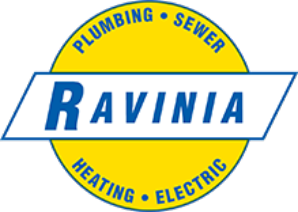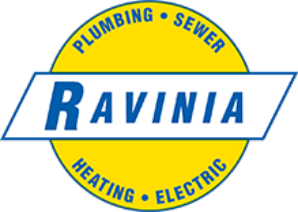
Did you know that the average American spends about 90% of their time indoors where the concentration of indoor air pollution is two to five times higher than outdoor concentrations? Poor indoor air quality can lead to several health issues, especially for family members who suffer from asthma, allergies, and other respiratory illnesses.
In our most recent blog, the professionals at Ravinia Plumbing, Sewer, Heating & Electric discuss what homeowners and businesses in Chicago’s North Shore need to know about Indoor Air Quality (IAQ) and how to make improvements to the quality of your home’s air supply.
Common Indoor Contaminants
Indoor air quality is compromised when contaminants are present. As all people are different, so too is their sensitivity to contaminants. But the very young or very old, those suffering from asthma or other respiratory ailments, or anyone with a specific sensitivity will be more susceptible to contaminants in the air. Here are some common indoor air contaminants to look out for in your Chicagoland home:
- Mold. Mold spores can be a problem if they grow and increase in concentration. Growth requires moisture and a food source (cellulose such as wood framing, paper backing on drywall, etc.). The food source must remain moist for 72 hours to start the growth and spread of mold.
- Bacteria. Bacteria, which can cause infectious diseases such as typhoid fever, pneumonia, and Legionnaires’ disease, can grow on non-living surfaces.
- Viruses. These can cause diseases such as the common cold, influenza, measles, and respiratory ailments. Viruses often are spread by droplet infection. A human sneeze can add 100,000 droplets of virus-containing moisture into the air.
- Pollen. Trees, flowers, grasses, and weeds produce pollen. Pollen counts increase in the Midwest from March through September.
- Gasses. There are thousands of gaseous chemicals that can enter homes from the infiltration of polluted outdoor air. Gasses can come from ozone and radon, from the use of cleaning and personal care products, and internal combustion sources such as a water heater, furnace, boiler, fireplace, cooktop, or oven.
- Particles. Particle pollution, also known as particulate matter, is a collection of fine solids suspended in the air. Particles consist of dust mites, dirt, soot, tobacco smoke, and liquid droplets, whose size is measured in microns (one-millionth of a meter). For comparative purposes, the average human hair is about 50 microns in diameter. Particles ten microns and larger are visible to the naked eye and will fall out of the air within four minutes but pose little health risk. Particles less than 10 microns can accumulate in the respiratory system. Particles less than 2.5 microns, meanwhile, which are usually in some form of smoke, pose the greatest health risk because of their ability to clog the respiratory system. Finally, particles smaller than 0.1 microns are small enough to pass through the lungs, directly into the bloodstream. Medical research is just now studying the effects of particles of this size on human health.
How to Improve Poor Indoor Air Quality
Now that we’ve discussed common contaminants that can cause poor indoor air quality in your home, let’s discuss ways you can improve it, which will result in fewer health problems and can also preserve your home.
The following are some strategies to improve indoor air quality:
- No smoking. Perhaps the single most important thing for you to do is to prohibit smoking in your house. Cigarette smoke contains more than 4,000 chemicals, and second-hand smoke is especially unhealthy for children.
- Keep your floors clean. Many contaminants make themselves at home on your floors, and they can accumulate for decades. Start by putting floor mats at every door and have people wipe their shoes before entering your home. Better yet, have them take their shoes off. Vacuum the floor a few times a week with a vacuum cleaner that has strong suction, rotating brushes, and a HEPA filter. After you vacuum, mop to pick up the dust the vacuum cleaner did not get.
- Keep humidity between 30% and 50%. The best way to do this is to buy a whole-house dehumidifier in the summer when the air is filled with more moisture. Here are some other ways to keep humidity under control during the warm months: a. Crack a window when cooking, running the dishwasher or bathing b. Vent the clothes dryer to the outside c. Empty drip pans in your window air conditioner and dehumidifier d. Do not overwater plants e. Fix leaky plumbing to prevent mold
- Test for radon. Radon is a radioactive gas that is the second leading cause of lung cancer. It generally enters the home through cracks and holes in the foundation. If your home has radon, contact a professional abatement company.
- Be careful with fragrances. Those lemon and pine scents in everything from laundry products to air fresheners may emit dozens of gasses. Here are some things you can do: a. Avoid aerosol sprays b. Buy fragrance-free or naturally scented laundry and household cleaning products c. Use mild cleaners that do not have artificial fragrances d. Use sliced lemons and baking soda to create a fresh scent…safely e. Open the windows to let in fresh air
- Clean and/or replace your furnace air filter. One-inch air filters should be cleaned or replaced monthly; thicker metal filters should be replaced every six months.
- Install a recovery ventilator. This ventilation system constantly replaces a small percentage of the air in your home with fresh air from the outside.
- Install a whole-house air cleaner. A whole-house air cleaner attaches directly to your HVAC system and can remove up to 99.88% of contaminants and particulate matter in your home.
Contact Ravinia Plumbing, Sewer, Heating & Electric for Indoor Air Quality Services
Ravinia Plumbing offers a full supply of indoor air quality systems to keep your home healthy and comfortable, including whole-house air cleaners, humidifiers, dehumidifiers, and recovery ventilators. Ravinia Plumbing has been in business since 1928, and we’ve made a name for ourselves as one of the most trusted and reliable plumbing, sewer, HVAC, and electrical companies in Chicagoland. Contact Ravinia Plumbing today to schedule an appointment for indoor air quality installation or repair services.



